Innovative Approaches Bring Refugee Children Back to School in Uganda
Finn Church Aid, with funding by EU Humanitarian Aid (ECHO), implements a condensed curriculum that allows refugee children who have not been able to attend school for long periods to catch up with their lost school years in Ugandan refugee settlements. Education helps to protect girls from early marriages.
Joyce Bisimwa, 17, a refugee from the Democratic Republic of Congo, came to Uganda with her parents and siblings in 2016. The hardship and lack of money for school fees forced her to drop out of school when she was on grade six in primary school and she spent years without education.
In 2019, of the 47,470 refugee children in Kyaka II refugee settlement only one in four were enrolled in primary school. Joyce was relieved when she could enrol in the Accelerated Education Program (AEP) in Bukere Primary School to catch up on her lost years.
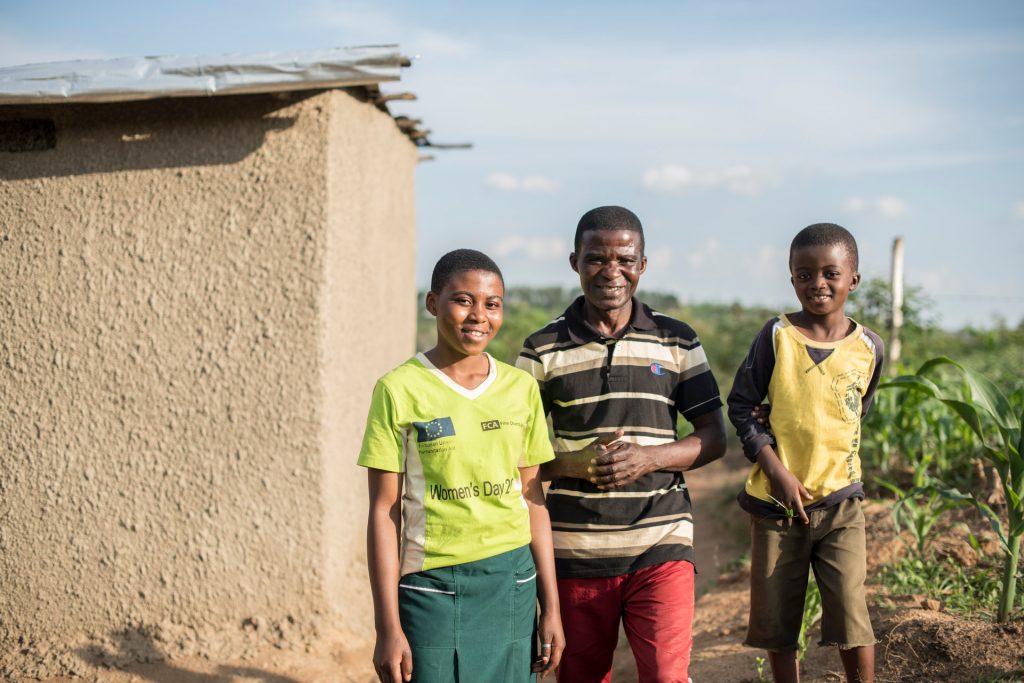
“I was very happy when I was allowed to return. The teachers here are so nice, and I feel happy when I see myself sitting in a class like this,” Joyce says.
To speed up the learning of youth like Joyce, the programme uses a specially designed and condensed version of the Ugandan curriculum. By covering two to three grades of primary education in one year and using teaching methods appropriate for different age groups, learners who have lost many school years can transition into the formal schooling system.
“We cannot leave girls behind, and I see a good future in Joyce. I know she will be a good influence on her other siblings,” says Joyce’s father Bisimwa Dieudonne.
Education for refugee girls a priority
The AEP programme is an integral part of the INCLUDE (Innovative and Inclusive Accelerated Education) project. Finn Church Aid (FCA) implements the programme in Kyaka, Bidibidi and Omugo refugee settlements in Uganda as part of an education consortium led by Save the Children and funded by EU Humanitarian Aid (ECHO).
One of the priorities is to support girls’ education. Under the project, 3,318 female learners in the three settlements have returned to school through the AEP. In Kyaka, additional 2,696 were able to return through Education in Emergencies cash support.
FCA trains teachers to ensure that learners receive inclusive, quality education. Felix Tumwesigye, an AEP teacher at Bukere Primary School, underwent various trainings from curriculum interpretation and teacher learning circles to child protection. Tumwesigye has seen many girls struggle to access menstrual hygiene materials, and girls also face concerns like teenage pregnancies and marriages. Girls have fewer role models in school, especially among teachers, and some parents prefer to support the education of the sons rather than the daughters, he says.
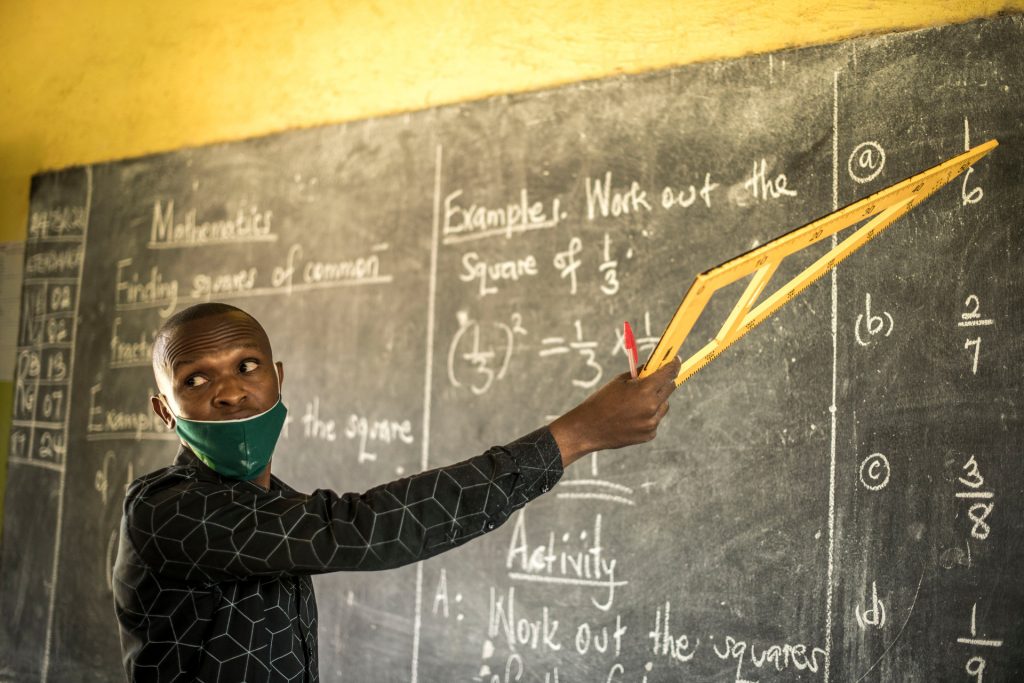
The project provides menstrual hygiene materials to all girls to prevent them from missing classes, and learners also receive scholastic materials. They can attend classes without fear of being sent away due to unpaid school costs or the lack of uniforms.
“Education is especially important for girls; it gives them a future and prevents them from being forced into early marriage,” says Tumwesigye.
Learning made fun and engaging
The project aims to make learning fun, engaging and more effective for learners in lower AEP levels and primary through innovative technology-based solutions for quality education. The component called Can’t Wait to Learn give learners access to tablets loaded with interactive games that help teach literacy and numeracy using the Ugandan lower primary curriculum.
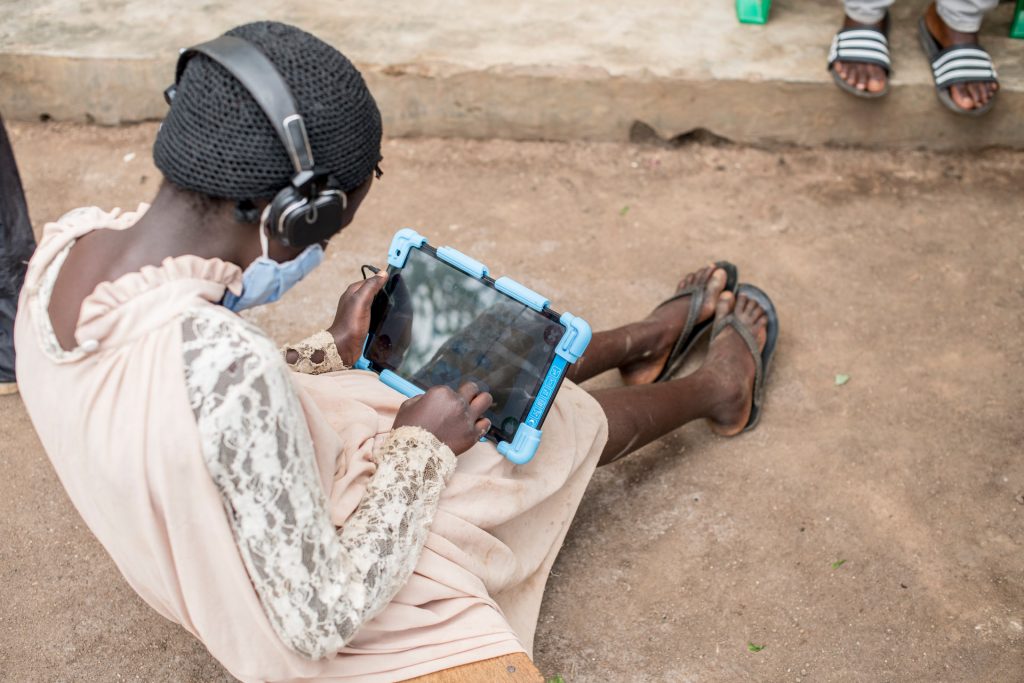
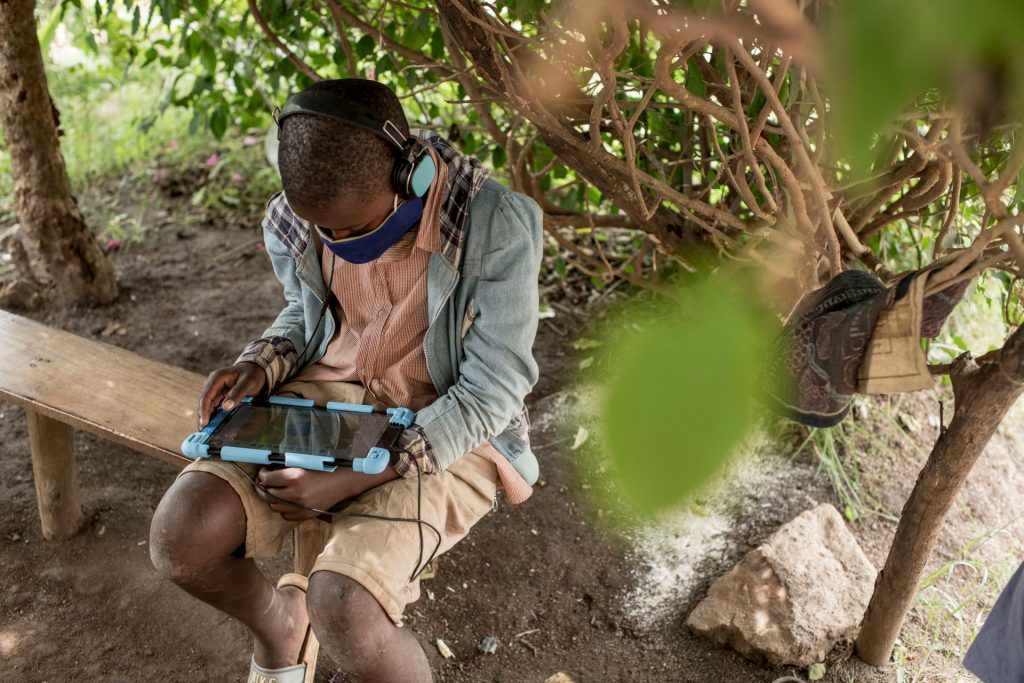
A series of recreational activities under the name of Team Up has been designed to reduce the stress that refugee children experience as a result of war. Many of these children create new social contacts or friends through such activities and strengthen their social and emotional well-being. School attendance has also been boosted through the Team Up activities.
The closure of schools due to the Covid-19 pandemic created sadness in many of the girls at Bukere Primary School. Lillian Kemigisa, 14, thought that she would not return and was relieved when the schools reopened.
“I feel safe like I have never felt before. I feel so happy because of the good teachers and the quality of education I receive here”, she says.
During distance learning, FCA together with other partners provided over 8,000 learners in Kyaka with home learning materials and distributed over 1,400 radios in the community.
“Studying from home helped me so much, but I felt happier when school resumed so that I could be with my friends again”, says Abigael, another girl from Bukere Primary School.
Bukere emerged as the best school in Uganda in 2019 in using tablets for learning and was rewarded with computers for the teachers. In a bid to support the increased number of children enrolling in school, more teachers have been recruited, trained and given instructional and learning materials. Fully furnished classrooms have also been set up, teacher’s accommodation built and gender-segregated latrines provided for learners and teachers.
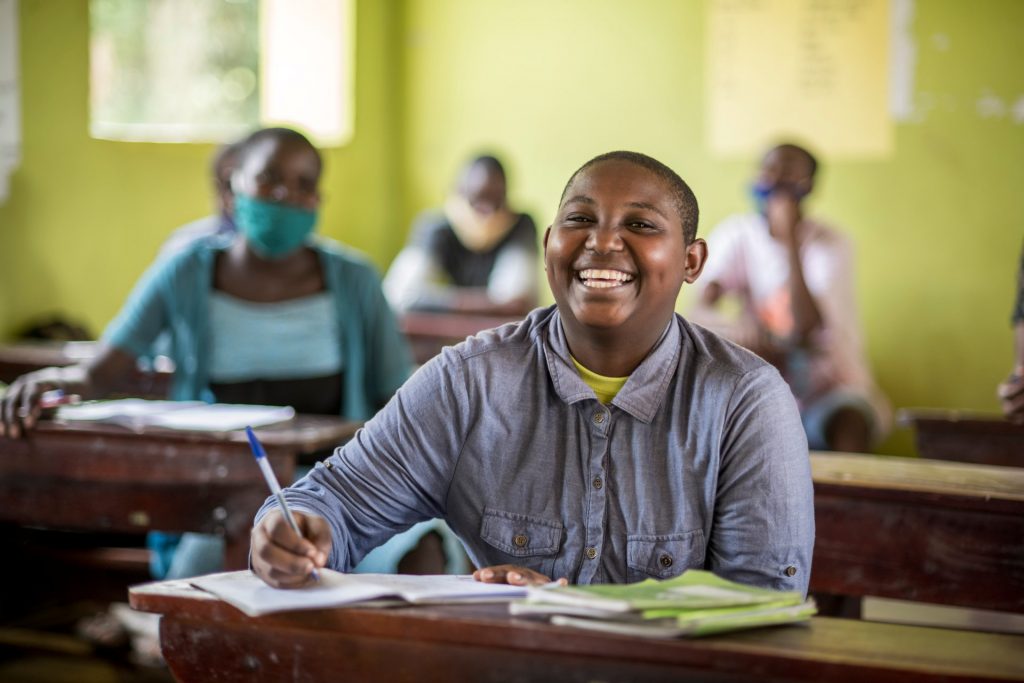
Through the project’s innovative approaches and other education initiatives in Kyaka, primary school enrollment increased from 12,161 learners in 2019 to 23,075 in 2020.
“I feel very happy that these girls are back to school. They had lost all hope of education before we had this programme,” Tumwesigye says.
BackgroundSupporting education in Uganda’s refugee settlements
The INCLUDE project is implemented by a consortium of Save the Children, Finn Church Aid, War Child Holland and Norwegian Refugee Council, funded by EU Humanitarian Aid (ECHO).
Since 2018, 3,410 children and youth in Kyaka and 2,418 children in Omugo and Bidibidi refugee settlements have been able to enrol back to school through the AEP programme.
With Education in Emergencies (EiE) cash for vulnerable school-aged children, a total of 5,871 children have been supported in Kyaka II, out of which 4,902 enrolled in primary school.
Text: Linda Kabuzire
Photos: Hugh Rutherford